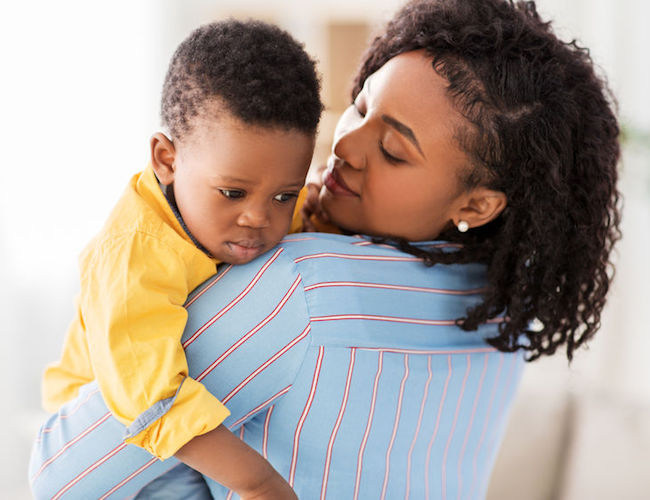Why does my toddler sometimes hit and bite?
When your sweet, gentle baby suddenly gets physically aggressive, it can be a serious shock. Learn why they lash out, and what you should do in response.
Parental guilt is real. That feeling when your kid sinks their teeth into your best friend’s baby and you question everything you’ve ever done? Yip, that’s the one. So the first thing to know is that most toddlers will go through a phase of physical aggression and it’s not because you’ve failed to raise them well.
There are a number of reasons why your two-year-old sometimes hurts others, explains Johannesburg-based child psychologist Cristine Scolari. Primary among these is a lack of communication skills. They can’t express themselves in language, so their frustration, disappointment and other big feelings come out in actions like kicking, slapping or scratching.
“They also don’t yet have a rational brain that allows for thinking, reasoning, problem-solving, empathy and general emotional intelligence, so it’s developmentally normal,” says Scolari. “They are still learning that it hurts others to hit and bite.”
Scolari offers the following five pointers for dealing with this stage.
Be conscious of the causes
Are they hungry or tired? Is there something stressful going on, such as the arrival of a new sibling, moving house or starting school? Any of these could cause your little one to lash out. Look for potential triggers and address those, advises Scolari.
Model the behaviour you expect from your child
If a toddler sees you shout when you’re angry, they will do the same, warns Scolari. By the same token, it is little use to smack a child because they’ve hit someone else. All that will do is reinforce that hitting is an appropriate way to deal with your feelings. In all things, children learn more from what you do than what you say.
Acknowledge your child’s feelings
Little ones don’t have the vocabulary to describe their own feelings, but you can build their emotional intelligence by acknowledging and articulating what they’re experiencing, says Scolari. Phrases like, “I can see that made you angry,” will help them learn to identify – and, eventually, verbally express – their feelings.
Establish ‘anger rules’
The message you want to send is that it’s actually okay to be angry or frustrated but it’s never okay to hurt others. Scolari suggests giving your child a range of acceptable options to express big and difficult feelings, such as running around outside, shouting into a pillow, punching a mattress or scribbling an angry picture. Because young children learn visually, you could even make a poster with the ‘anger rules’ of the household. Of course, the rules must apply to the adults as well.
In addition to anger rules, try creating a ‘calm down space’ (or calm down cave, spaceship and so on). This should be in a common area of the household (don’t isolate your child in their room) and have a positive association – a place you sit with your child to help them to take deep breaths and think happy thoughts. Demarcate the space with a hoola-hoop or pile of pillows and introduce an element of fun. The aim is to start teaching children how to self-regulate, to manage and shift their emotions in healthy ways.
Watch what you say
"Parents too often fall into the habit of using a lot of negative language with their toddler", says Scolari. When you’re constantly saying “No!”, “Don’t do X!” and “Stop that!”, your child can become very overwhelmed. They are trying to explore the world but are told everything they do is wrong.
Try to use positive statements as often as you can. Instead of saying, “Don’t hurt the cat!,” for example, try, “Remember that cats like gentle touch”. This will avoid the kind of overwhelm that often leads to anti-social behaviour like hitting and biting, Scolari explains.
IMAGE CREDIT: 123rf.com



